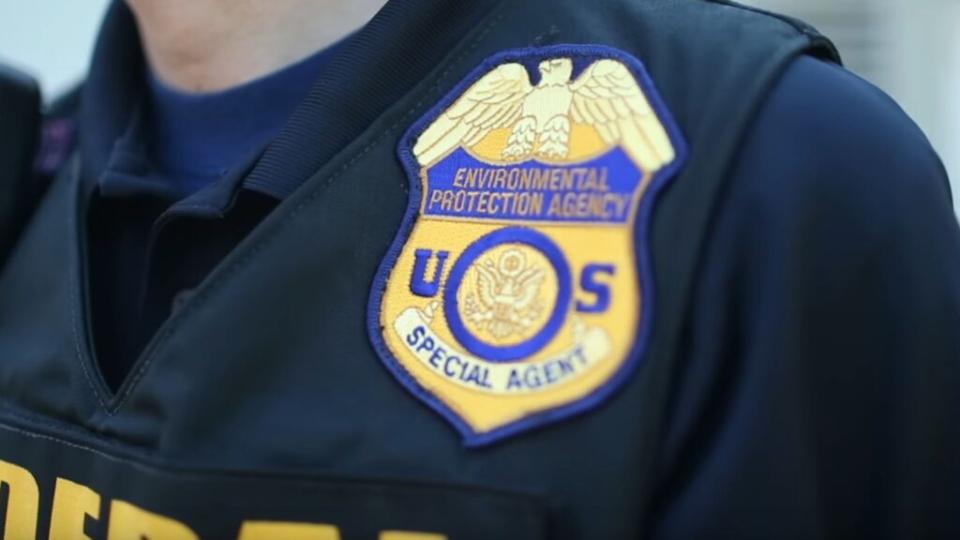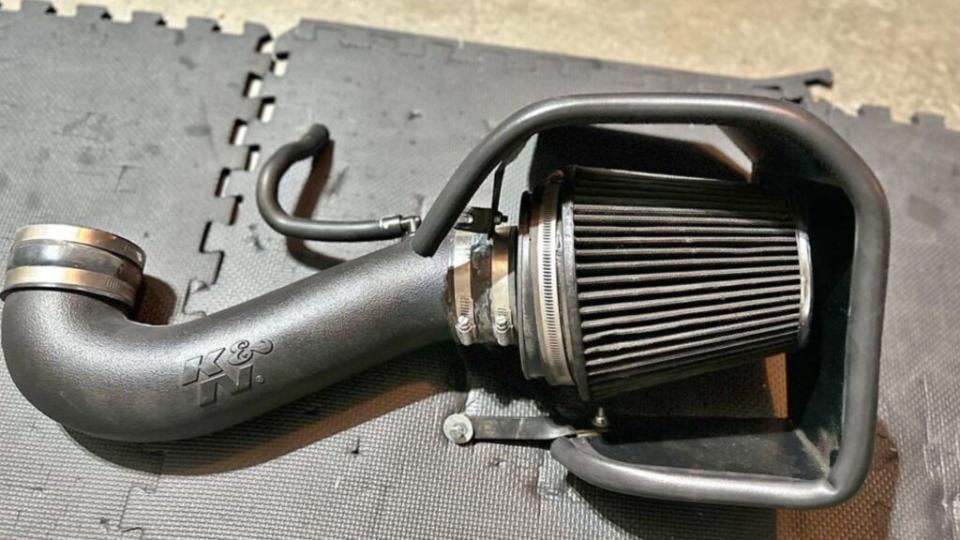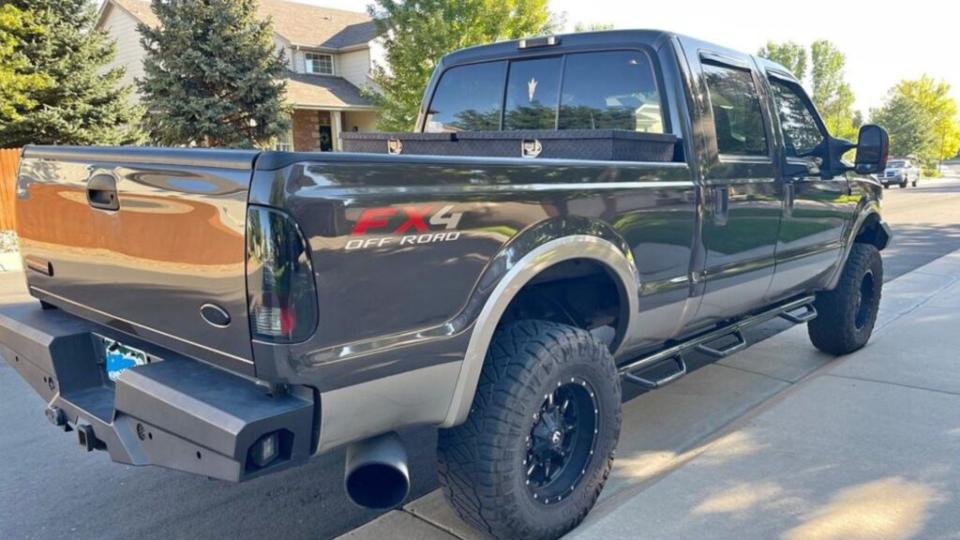The EPA Is Targeting Aftermarket Car Modifications
Read the full story on The Auto Wire

There’s an ideal among some Americans, usually those who lean a little more Left, that federal agencies like the EPA are heroes who constantly do good and very little evil. Because of this preconception, any criticism of federal action is met within the frame of anti-patriotism or even worse, an intent to dismantle a loving, kind government. However, two incidents quickly deconstruct this rather simplistic view. One is the EPA’s spilling of pollutants from Gold King mine in Colorado into the Animas River, which in turn polluted the mighty Colorado River. Water that was normally beautifully crystal clear in some areas turned a mustard yellow as recreationists were warned to stay away until everything cleared up. While accidental, the end result was the EPA, the federal agency charged with protecting the environment, caused a tremendous amount of pollution.
Learn how NYC traffic cameras are busting modified cars here.
The second event which calls into question the EPA’s heroic actions – and there are many, many more like this – came after the Norfolk Southern train derailed on February 3 in East Palestine, Ohio. Michael Regan, Administrator of the EPA, insisted there was nothing toxic in the air and water of the area. Yet we have seen countless examples to prove such an assertion not only false, but laughably so.
Citing these two examples, one attributed to incompetence and the other perhaps to something more sinister, isn’t to say the EPA has done no good in its 52-plus years of existence. However, to never question the agency’s actions is to invite disaster, abuse, and corruption.

Targeting An Industry
It’s in that light that we take a hard look at how the EPA is treating the aftermarket automotive parts industry, specifically when it comes to anything it considers to be an emissions defeat device. Just what is such a thing? According to an Enforcement Alert issued by the EPA in December 2020 it’s spelled out as follows:
“Examples of such parts, devices, and elements of design include: the on-board diagnostic system (OBD); diagnostic trouble codes (DTCs); sensors for oxygen, oxides of nitrogen (NOx), ammonia, particulate matter (PM), urea quality, and exhaust gas temperature; diesel particulate filters (DPFs) and their sensors; exhaust gas recirculation (EGR) systems; diesel oxidation catalysts (DOCs); selective catalytic reduction (SCR) systems; NOx adsorber catalyst (NAC) systems; engine calibrations that affect engine combustion (e.g., fuel injection or ignition timing, injection pattern, fuel injection mass for each injection event, fuel injection pressure, EGR flowrate, mass air flowrate, EGR cooler bypassing).”
That’s quite the list of potential defeat devices. If you’re realizing pretty much every powertrain, intake, and exhaust modification could fall under that laundry list, you’re starting to catch on to what’s happening.
Of course, the EPA has provided some clarification about certain items it considers defeat devices. In a memo issued on November 3, 2020 it says “tuners” which “change the ECU… might be an illegal aftermarket defeat device, the use or installation of which might constitute illegal tampering.” Hopefully that makes everything crystal clear.

In that same memo, the EPA does let everyone know that there’s no point during the life of a car when tampering with the many emissions-related devices as defined by the agency is okay. Even if you pull the engine or other equipment from a vehicle that’s been wrecked, you still have to play by the rules as defined by the EPA or else.
It gets even better: The Texas Commission on Environmental Quality released a document called Tampering of Vehicle Emissions Controls. It spells out how even adding a turbocharger to a vehicle could be considered an emissions defeat device because it’s “not originally certified on the car.” Of course, if you can produce federally-approved testing which shows vehicle emissions don’t increase with that specific configuration then you get an exception, otherwise you could be facing crippling fees and maybe even criminal prosecution.
Severe Consequences
Failure to do everything just like the EPA wants it can sink your business, or at least put you in a world of financial hurt. The agency proudly trots out recent examples of its and the Department of Justice’s enforcement efforts. One involves fining Borla $1,022,500 in 2022 for the sin of manufacturing and selling aftermarket exhausts designed for the removal of catalytic converters.
In a press release on the Borla matter, Martha Guzman, EPA Pacific Southwest Regional Administrator gives a powerful quote to sum up what this is all about: "Aftermarket defeat devices are against the law and disproportionately impact communities with environmental justice concerns.”
If the sort of “environmental justice” reference Guzman uses confuses you, a great explainer of this line of thinking was laid out in the Los Angeles Times not too long ago. An article headline boldly declares “White drivers are polluting the air breathed by L.A.’s people of color.” This blending of social justice and environmental enforcement has finally reached the EPA in force after being the topic of university classrooms and radical environmentalist publications alongside other level-headed discussions of abolishing farming, shipping, and other practices allegedly destroying the planet.

If you think Borla paid through the nose, consider the $3.1 million settlement Power Performance Enterprises entered into after the EPA alleged it manufactured and sold defeat devices. Not only was the company and president/owner Kory Blaine Willis facing civil action, they were slapped with federal criminal charges. DieselOps LLC and Orion Diesel LLC were slapped with a $10 million civil penalty in a default judgement while the owner of the two companies was hit with a $455,925 civil penalty along with a $1 million fine for alleged fraudulent transfers.
Big names in the aftermarket world have been caught in this squeeze, like Summit Racing, which settled for $600,000 last summer. Parts iD was hit for $500,000 while Keystone Automotive, the owner of Warn and other off-road brands, incurred a $2.5 million penalty.
One of the most notorious enforcement cases involving an aftermarket parts company was for Gear Box Z. The company settled the matter with the EPA in August 2021 after being accused of “violations of the Clean Air Act (CAA) associated with the manufacture, sale, and/or offer to sell aftermarket products that defeat the emissions control systems equipped on diesel pickup trucks.” The EPA alleged almost everything the company made and sold was illegal. Financially broken, GBZ and its owners paid a civil penalty of just $10,000 “due to its demonstrated financial inability to pay a higher penalty.” Essentially, the EPA put them out of business.
Environmentalists cheered the closure of GBZ, National Law Review gave a chilling take on the legal fallout of the case: “Perhaps more importantly, EPA’s interpretation signals that in the future it may consider any modification of a stock ECM on a vehicle engine certified for road use to be unlawful ‘tampering’ under the Clean Air Act. This might include even those modifications that do not directly defeat a vehicle’s emissions control system.” In other words, the case signaled to many it’s now open season on aftermarket parts companies.

Shops Fall Afoul
It's not just aftermarket parts manufacturers and retail sellers getting hit by the EPA. Back in August 2022 Road & Track ran a shocking story about a little Honda speed shop which somehow attracted the attention of the EPA. With an ongoing investigation, the shop had to refuse work on any vehicle that wasn’t trailered in or any vehicle lacking a dedicated ECU. The owner told R&T the legal fees alone could put the shop out of business. Then he asks a critical question: why don’t the big names in the aftermarket world help out little shops like him that are targeted?
Just like with the IRS, it’s obvious the EPA likes hitting these small speed shops because they lack the resources (mostly money) to really fight. Are these larger brands and organizations truly scared of the EPA? Or do they only give lip service to keeping the hobby alive by everyone sticking together?
If you think the EPA is the only threat for aftermarket parts manufacturers and performance shops, the Diesel Brothers were used as an example to show anyone can take civil action in court for defeat device violations. The famous Utah shop that was featured on a reality TV show was successfully sued by Utah Physicians for a Healthy Environment with the court awarding $851,000 in civil penalties as well as $915,000 in legal fees. What’s truly strange about the case is the civil penalties go to the EPA as if it won the case. An appeal upheld the original decision.

Private Citizens Targeted
Speaking of private citizens being a threat, they can also be threatened in this regulatory ramp-up. A Road & Track article from July 2022 claims the New Jersey Department of Environmental Protection’s Bureau of Mobile Sources & Air Compliance & Enforcement is combing through Facebook Marketplace for illegally modified vehicles for sale. Agents reportedly have contacted the owners and threated them with fines, even jail time. So if you think your modified car sitting in your garage can fly under the radar, the noose is tightening and it might only be a matter of time before you’re targeted in some sting.
Locking Things Up
Automakers are increasingly concerned with hacking attempts on new, connected vehicles. While it might seem understandably wise to guard against someone remotely tapping into a car, possibly causing a serious accident, this development is a double-edged sword.
Back in October, Ford revealed the 2024 Mustang would feature over-the-air updates. To guard against hacking attempts, the automaker is essentially locking down the entire digital architecture of the pony car, something GM has done with the C8 Corvette. This means tuners either have to spend a ridiculous amount of time and money figuring out how to hack to the car so they can add modifications or they can't market to owners of the new Mustang, C8 Corvette, and others.

However, Ford also revealed it has a solution. The automaker will be working with a select group of aftermarket companies to provide "approved" bolt-on mods and tunes. Undoubtedly, these will be deemed legal by the EPA since Ford has the resources to show they don't apparently negatively affect emissions.
In essence, this move starts squeezing out aftermarket companies who won't play ball with the automakers, which have fostered quite the close relationship with the EPA. There's little doubt that with fewer options and with Ford undoubtedly getting a cut of all these approved modifications, consumers will be paying more for air intakes, exhaust systems, tunes, etc. If that sounds like a cash grab, that might be exactly what it is.
Blaming Enthusiasts
Sadly, some have decided to single out diesel truck enthusiasts for the EPA running roughshod over American companies and individuals. In an article published December of last year, Road & Track talked to a performance diesel company representative who blamed everything on "the diesel community."
Perhaps under the stress of the constant threat of huge fines, sudden raids by armed agents, and possible federal criminal prosecution, some in the industry have formed a bizarre Stockholm Syndrome where their persecutors have done nothing wrong. Instead, fellow captives in the regulatory prison are to blame for increasing crackdowns, even though they're not limited just to the auto industry and aftermarket tuning.
It's easy and quite frankly lazy to blame everything on guys rolling coal and posting the videos to social media. Can that crowd be annoying? Sure. But if you believe this entire problem has been caused by them, you're no longer looking at the big picture.

Playing Politics
Supposedly the EPA like other government regulatory agencies only operates in a non-partisan manner. They’re bureaucrats, after all, with the rare exceptions of appointments to such agencies, and so they’re interested only in enforcing the law as defined by Congress, an elected body, or so we're told. The problem is just weeks after the 2020 election when Trump failed in his re-election bid the EPA seemed to really hit the accelerator on going after emissions defeat devices and several other regulatory issues.
If you don’t find the timing curious, here’s something else to chew on: left-leaning energy and environmental news source E&E News ran an article just as 2023 was starting all about how “2023 is a cliff for climate rules.” That’s a curious thing to say, considering the EPA supposedly just enforces what Congress passes into law.
That article explains in some detail why the EPA needs to go further than ever before on clean air rules and climate change mandates or else new rules could be defeated in the courts. After all, the conservative Justices on the US Supreme Court have made it clear they’re targeting administrative law or federal regulators creating laws that are ostensibly related to what Congress has passed.

The other risk is that Joe Biden will be defeated in 2024 and there will be a Congress which isn’t so warm to the EPA and other regulators getting loose with interpreting federal law. Not only that, the 2025 House and Senate might pass laws to walk back the EPA’s aggressive actions. In other words, the EPA better get away with what it can now, possibly introducing a poison pill against elected officials representing the will of the people in shifting regulatory enforcement. Somehow in their minds, the people behind this push believe they’re the heroes in this story. As is often the case, such people feel the citizenry is dumb and doesn’t know what’s best, so they have to go behind their backs to save the planet because such people are smarter since they went to fancier schools and such.
Modifications Are Wrecking The Planet?
Climate change is constantly cited by the EPA and its allies for the reason why emissions defeat devices must be targeted with impunity. While so many in public discourse claim the “science is settled” on the link between climate change and carbon emissions from human activity such as driving cars, it’s becoming more obvious that voices of dissent in the scientific community have been systematically silenced.
That enables the EPA to treat violators of its regulations as having committed some of the worst offenses against humanity. There are many criminal activities you could probably engage in and be treated with kid gloves in comparison, including violent offenses.
Yes, health concerns are another reason often talked about for ensuring everyone complies with EPA regulations for vehicle emissions. However, after the breakdown of public health policy during the pandemic, many people are rightfully skeptical about virtually any claim made by regulators, physicians’ groups, and others pertaining to any number of health risks. In other words, the claims that your car modifications are costing lives don’t seem to hold as much water with the public as before. Perhaps this is why environmentalists are panicking about shoving through as many radical positions with the EPA in 2023 as possible?
Images via US EPA, Facebook
Join our Newsletter, subscribe to our YouTube page, and follow us on Facebook.

 Yahoo Autos
Yahoo Autos 